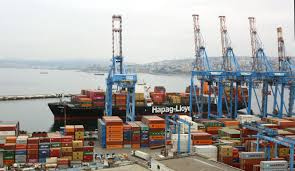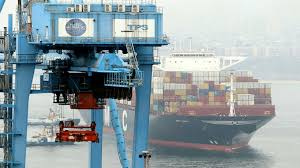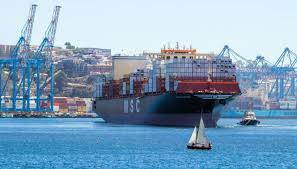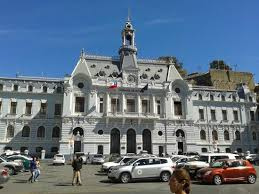What types of cargo are primarily handled at Valparaíso’s port?

What types of cargo are primarily handled at Valparaíso’s port?
What types of cargo are primarily handled at Valparaíso’s port? Valparaíso’s port is one of the most significant maritime gateways in Chile, serving a diverse range of cargo types.
The port’s strategic location and extensive facilities enable it to accommodate various goods essential for both local and international trade. Here’s an overview of the primary types of cargo handled at Valparaíso’s port.
Containerized Cargo
Containerized cargo is a major component of Valparaíso’s port operations, facilitating the transport of goods in standardized containers.
This type of cargo includes everything from electronics and clothing to machinery and food products, ensuring efficient handling and storage.

Bulk Cargo
Bulk cargo, including both dry and liquid types, is another significant segment at Valparaíso’s port.
Dry bulk cargo typically consists of commodities like grains, fertilizers, and minerals, while liquid bulk includes petroleum products and chemicals.
Breakbulk Cargo
Breakbulk cargo refers to goods that are transported individually, rather than in containers.
This category includes heavy machinery, construction materials, and vehicles, which require specialized handling and storage facilities.
Ro-Ro Cargo (Roll-on/Roll-off)
Ro-Ro cargo involves vehicles that can be driven on and off vessels, including cars, trucks, and specialized equipment.
Valparaíso serves as a key entry point for vehicle imports and exports, supporting both local dealerships and international trade.
Perishable Goods
The port also handles a variety of perishable goods, including fresh fruits, vegetables, and seafood.
Cold storage facilities ensure that these products maintain their quality during transport, catering to both local and export markets.
Construction Materials
Valparaíso’s port is a crucial hub for importing construction materials, such as cement, steel, and wood.
With ongoing infrastructure development in the region, this type of cargo is essential for supporting local construction projects.
Agricultural Products
The port facilitates the export of agricultural products, including wine, fruits, and nuts, which are significant to Chile’s economy.
Valparaíso serves as a key logistical point for shipping these goods to international markets.
Mineral Exports
Chile is a major exporter of minerals, and Valparaíso plays a role in handling shipments of copper, lithium, and other minerals.
The port’s facilities support the logistics involved in transporting these valuable resources to global markets.
Chemicals and Hazardous Materials
Valparaíso’s port has specialized facilities for handling chemicals and hazardous materials, ensuring compliance with safety regulations.
This includes both imports and exports of industrial chemicals, fertilizers, and other potentially dangerous goods.
General Cargo
General cargo encompasses a wide range of items not categorized in other specific groups, including furniture, appliances, and personal effects.
The port’s versatility allows it to manage various types of general cargo efficiently, supporting local businesses and trade.
In summary, Valparaíso’s port handles a diverse array of cargo types, ranging from containerized and bulk cargo to perishable goods and vehicles.
This variety reflects the port’s significance as a vital economic hub, supporting both local industries and international trade networks.
As Valparaíso continues to adapt to changing global trade patterns, its port remains essential for facilitating the movement of goods across the region.





Leave a Reply